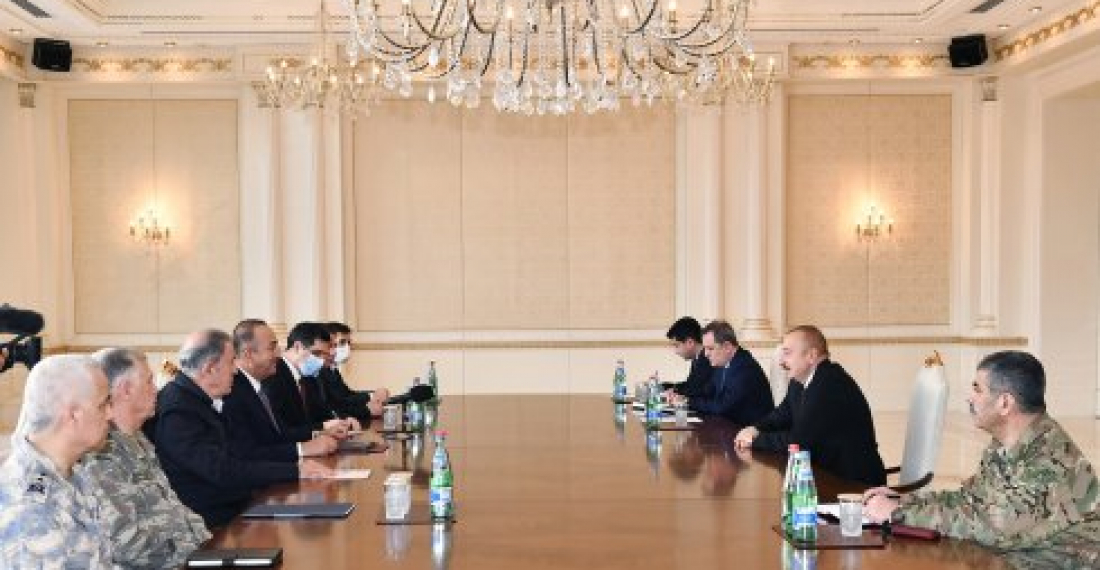Turkey's foreign and defence ministers, Mevlut Cavusoglu and Helusi Akar arrived in Baku on Sunday and went straight into talks with Azerbaijani president Ilham Aliyev.
The visit comes as the war between Armenia and Azerbaijan reached a decisive moment, with Azerbaijan saying it has taken the town of Shusha, a strategic and symbolic fortress town in Nagorno-Karabakh which has been under Armenian control since 1992. Armenias confirm heavy fighting in the area but have not yet confirmed if the town has been lost.
This was Cavisoglu second visit to Baku this week. Turkey and Azerbaijan appear to be co-ordinating positions ahead of what is likely to be a busy week on the diplomatic front.
Armenia says Turkish officers and special forces are fighting with the Azerbaijani army in Karabakh, but Azerbaijan says Turkey is providing political and diplomatic support.
source: commonspace.eu with agencies.
photo: Turkey's foreign and defence ministers, Mevlut Cavusoglu and Helusi Akar with president Ilham Aliyev of Azerbaijan in Baku on 8 November 2020.







